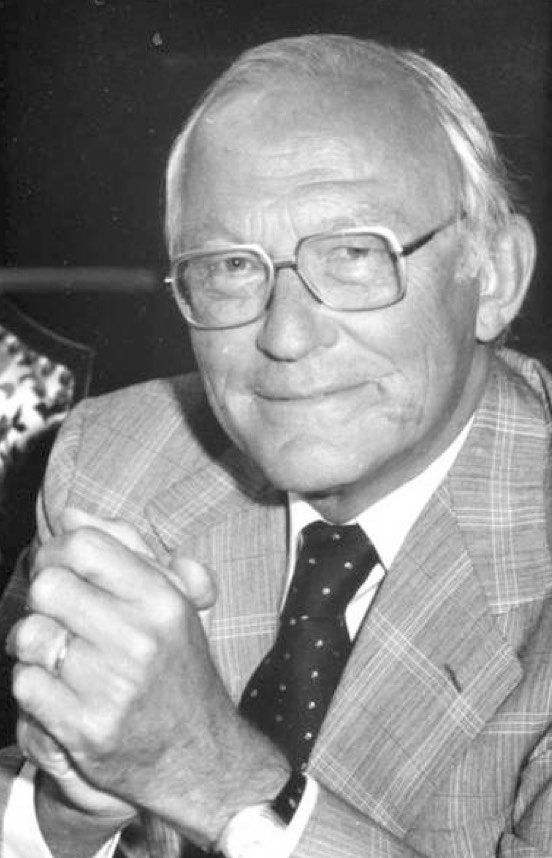Klaus-Joachim Zülch

Klaus-Joachim Zülch (April 4, 1910 – December 2, 1988) was a German neurologist and neuropathologist who systematically investigated the neuropathology and biology of human brain tumors[1], as well as the topography and pathogenesis of ischemic brain infarcts[2].
Zülch was born in Allenstein (East Prussia, now Poland) where his father Georg Zülch occupied the position of Mayor. He studied Medicine in Marburg, Rostock, Wien, Heidelberg and Berlin, and in 1935 he got his MD degree at the University of Breslau with a dissertation on primary cortical atrophy of the cerebellum. He received fellowships from the Daniel Stevenson and Rockefeller Foundations for academic training in neurosurgery, neuropathology and neurology under James R. Learmonth (Aberdeen, 1932), Otfrid Foerster (Breslau 1935-1936) and Georges Schaltenbrand (Würzburg 1936-1937). In 1940 he passed his habilitation in neurology at the University of Berlin, and in 1949 he was promoted to Professor of Neurology at the University of Hamburg.
In 1937 he started his scientific career at the Kaiser-Wilhelm- (later Max-Planck-) Institute of Brain Research in Berlin-Buch in the Department of Tumor Research and Experimental Pathology directed by Wilhelm Tönnis. Building up one of the largest collections of histological sections and case reports of human brain tumors, he established a detailed description of the pathological anatomy and the biological behavior of brain tumors which contributed essentially to the World Health Organization (WHO) Classification of Brain Tumors[3]. Interrupted during World War II by his service as a military physician in a panzer division and several military hospitals, he maintained his affiliation to the department of Wilhelm Tönnis and after the war followed him to Bochum Langendreer and to Cologne, where in 1951 he was appointed as director of the newly formed Department of General Neurology of the Max-Planck-Institute of Brain Research. In 1959 he received an additional appointment as Director of the Municipal Clinic for Neurology in Köln-Merheim. This double appointment facilitated his unique approach to correlate basic neuropathological and experimental neurological research with clinical neurology. His institute thus became one of the first successful examples of bench-to-bed translational research worldwide.
The results of his investigations have been published in more than 600 scientific articles, monographies, handbooks and atlases. His achievements were recognized by 15 honorary memberships in academic societies, his membership in the National Academy of Sciences Leopoldina and numerous scientific prizes including the Wilhelm Erb Medal of the German Neurological Society (1981) and the Otfried Foerster Medal of the German Society of Neurosurgery (1986).
Zülch retired in 1978. To honor his memory, the Gertrud Reemtsma Foundation established in 1990 the K.J. Zülch-Prize for exceptional achievements in basic neurological research which is awarded annually by the Max-Planck-Society.
- K. J. Zülch: Biologie und Pathologie der Hirntumoren. Handbuch der Neurochirurgie 13 (1956): 245-90
- K. J. Zülch: Über die Entstehung und Lokalisation der Hirninfarkte. Zentralbl Neurochir 21 (1961): 158-178
- P. Kleihues et al.: The WHO classification of tumors of the nervous system Journal of Neuropathology & Experimental Neurology 61 (2002): 215-225